Make an appointment with your doctor
First of all: contact the health professional who will follow you during this pregnancy! It's up to you to make your choice : this is generally your gynecologist, but also sometimes your general practitioner or a midwife. If the result of your pregnancy test is clear, if you have carried out several (admit it! you wanted to be 100% sure :-), it is generally not necessary to take a blood test to confirm the implantation of baby.
On the other hand, he will give you an appointment for the first pregnancy medical consultation, which generally takes place between the 8th and 12th week of amenorrhea. If you are not familiar with these terms, do not worry, you will quickly discover the vocabulary of pregnancy: its progress is evaluated in weeks of amenorrhea (SA) (i.e. in number of weeks since your last period) more than in actual weeks of pregnancy (SG). I promise, you'll get used to it quickly!
This first pre-natal examination will lay the foundations for your pregnancy follow-up: it is an opportunity to take stock of your health and your possible medical concerns, to discuss the precautions to take while expecting baby (we will come back to this just in below), to ask your questions, which are surely numerous!
Some gynecologists offer a follow-up ultrasound at this stage, to get a first idea of the conception date, listen to the embryo's heart, check its correct positioning in the uterus and determine if you are expecting one or more children. This dating ultrasound is in no way obligatory. The famous T1 echo, the first obligatory ultrasound, which makes it possible to precisely date the start of pregnancy, must be carried out between the 11th and 13th week of amenorrhea. Conclusion: we will probably have to wait a little longer to see this little baby!

The first pregnancy paperwork…
This prenatal appointment will also be an opportunity to collect the pregnancy declaration form, to be sent to the Family Allowance Fund (CAF) and Health Insurance before the end of the third month. And yes, everything becomes concrete! It is important to send these documents to open your rights to maternity leave and possibly receive the birth bonus . Please note that you have no obligation to reveal your pregnancy to your work at this stage (unless you wish to of course): you are free to announce the happy news whenever you wish. Many expectant mothers wait until the 12-week mark has passed to do so.
…and the first blood tests!
Your doctor will also order a blood test, to determine your blood type if you do not know it yet, and possible immunity to toxoplasmosis . This disease, transmitted by cats via their litter or contamination of food growing in the ground, is one of the things to absolutely avoid during pregnancy. In the absence of immunity, you will be re-tested every month. You will quickly become acquainted with the little taboos of pregnancy, and the precautions that future mothers are asked to take to help baby grow healthy :-)
Precautions to take from the start of pregnancy
A big change is coming: your lifestyle must be impeccable. No alcohol, no cigarettes (you may want to consider quitting smoking if you are a smoker) and of course no drugs. Coffee and tea should be limited during pregnancy, as high levels of caffeine can harm your little one.
On your plate, some changes (not always pleasant we grant you) are also necessary: more cold meats, raw meats, eggs or raw fish, raw milk and soft or blue cheeses to limit the risk of contracting salmonellosis or listeria . They are one of the foods you will find after giving birth. For more information on the subject, do not hesitate to read our article Prevention : what foods should I forbid myself during pregnancy.
And in the bathroom ? A new beauty routine is emerging! As soon as you announce your pregnancy, remember to moisturize your skin well – particularly the areas that will quickly be under tension: breasts, stomach, but also hips, buttocks, lower back and upper thighs – to prevent the appearance of stretch marks. By using a stretch mark oil or cream such as Le Lait Fondant, L'Huile Sensorielle or Le Baume Onctueux morning and evening, you will boost the production of collagen and elastin which are often lacking in pregnant women. Applied in slow massages, you will soften your skin to avoid these unwanted things!
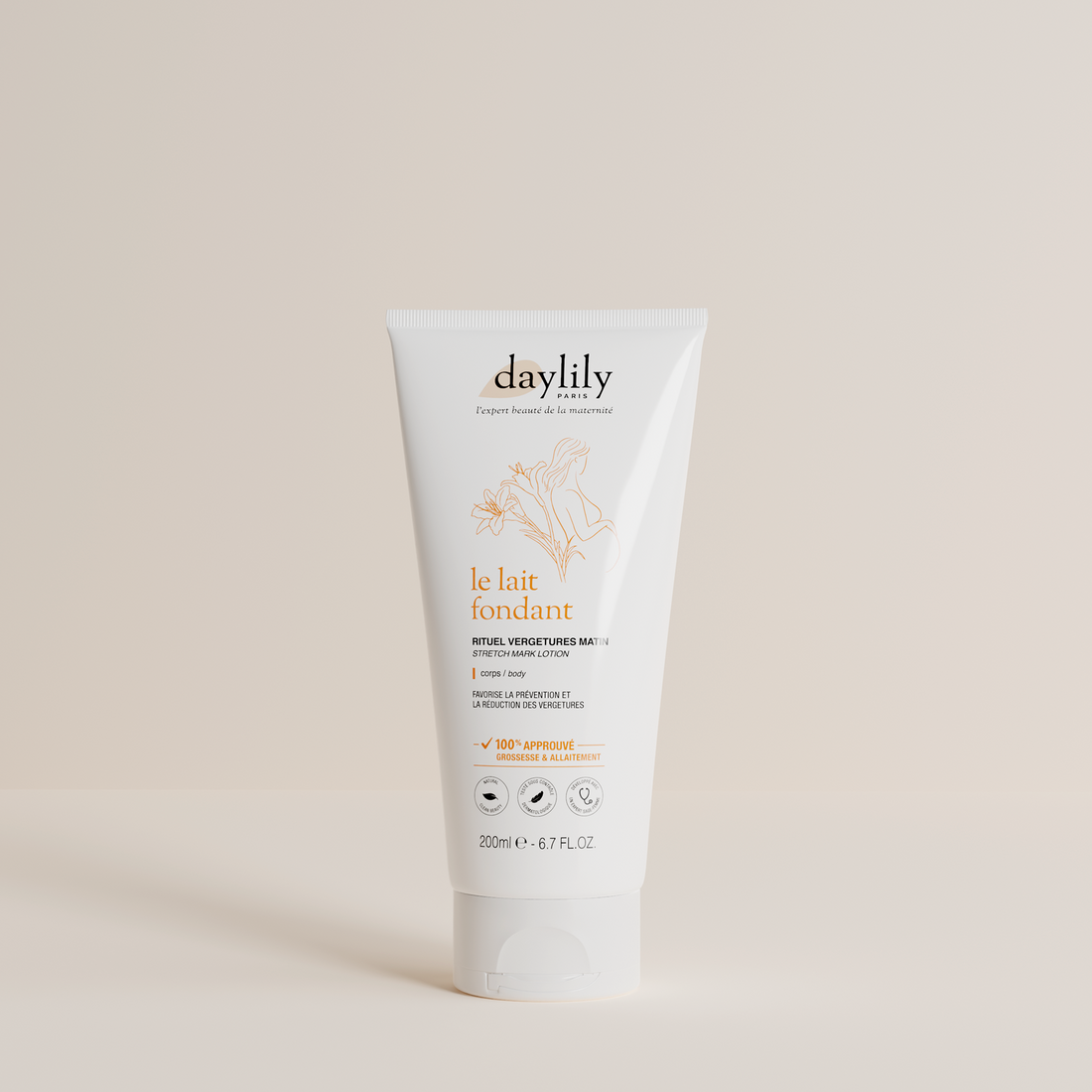

- Regular price
-
29,90 € - Regular price
-
- Sale price
-
29,90 €
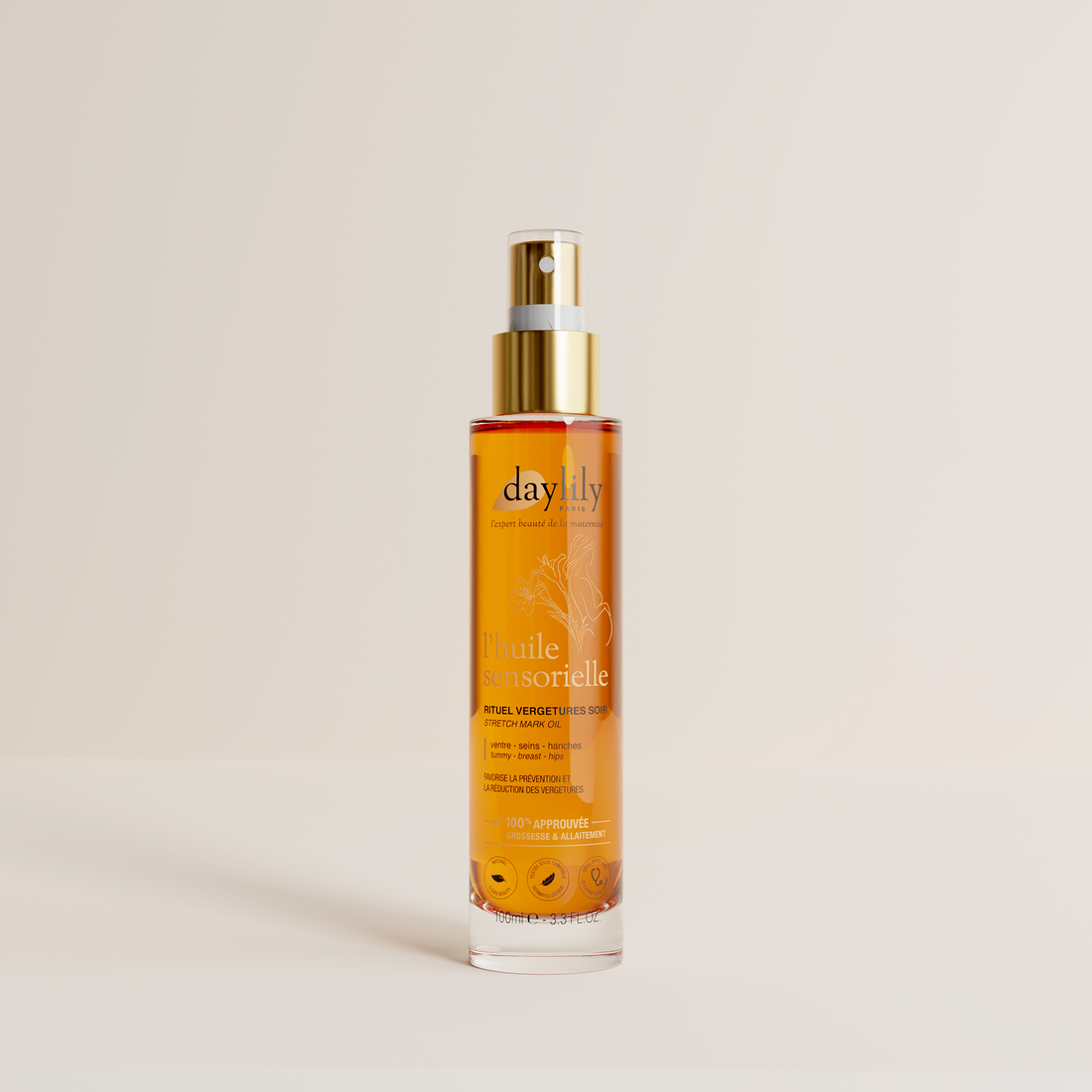

- Regular price
-
30,90 € - Regular price
-
- Sale price
-
30,90 €
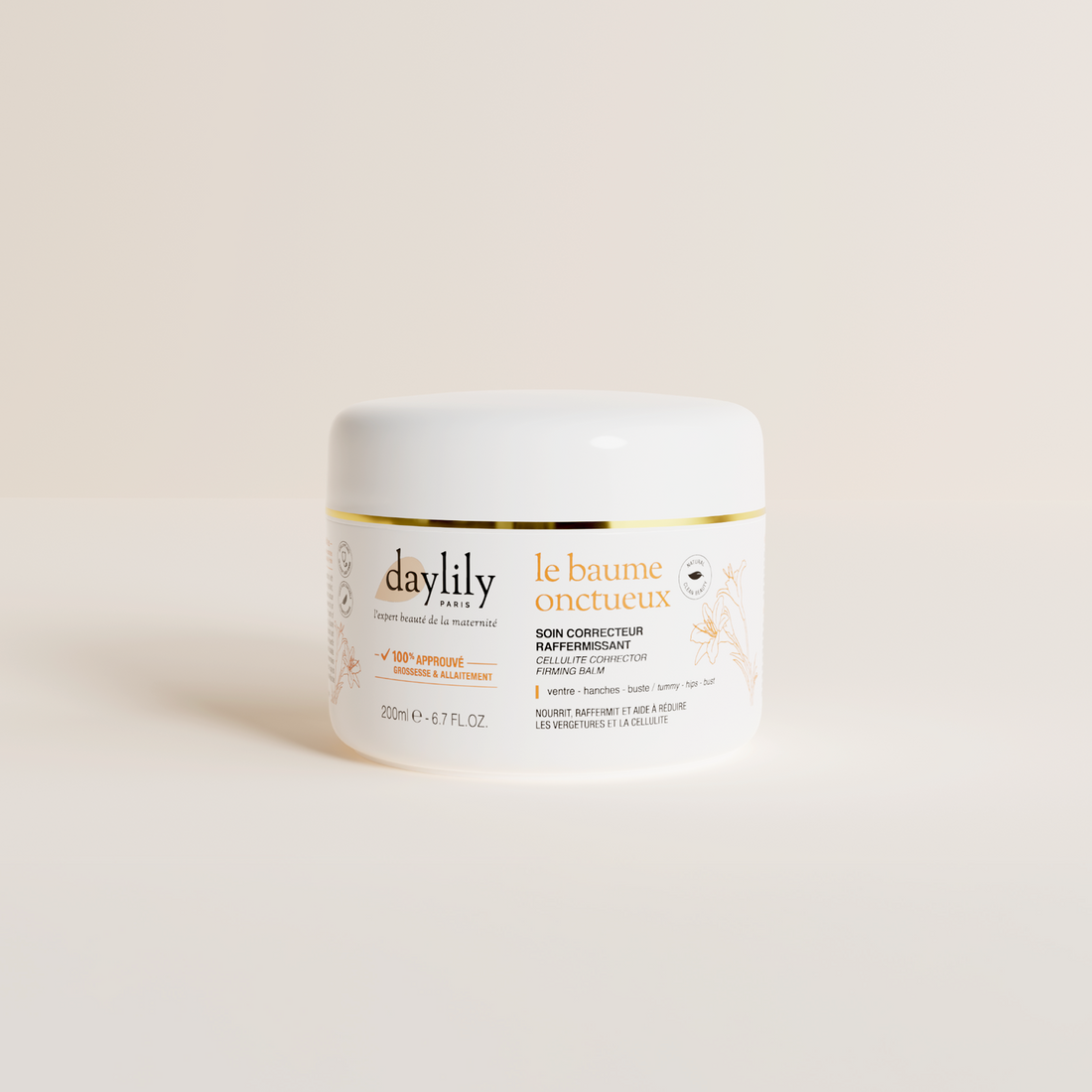

- Regular price
-
35,90 € - Regular price
-
- Sale price
-
35,90 €
Also remember to apply a very High Protection sunscreen such as Crème Radieuse SPF50+ : during pregnancy, hormones go into overdrive, the body's balance changes, and the body begins to produce more melanin, responsible for skin pigmentation. the skin. Result ? Without suitable sun protection, you risk seeing your pretty face become covered in brown spots – the famous melasma , or pregnancy mask !
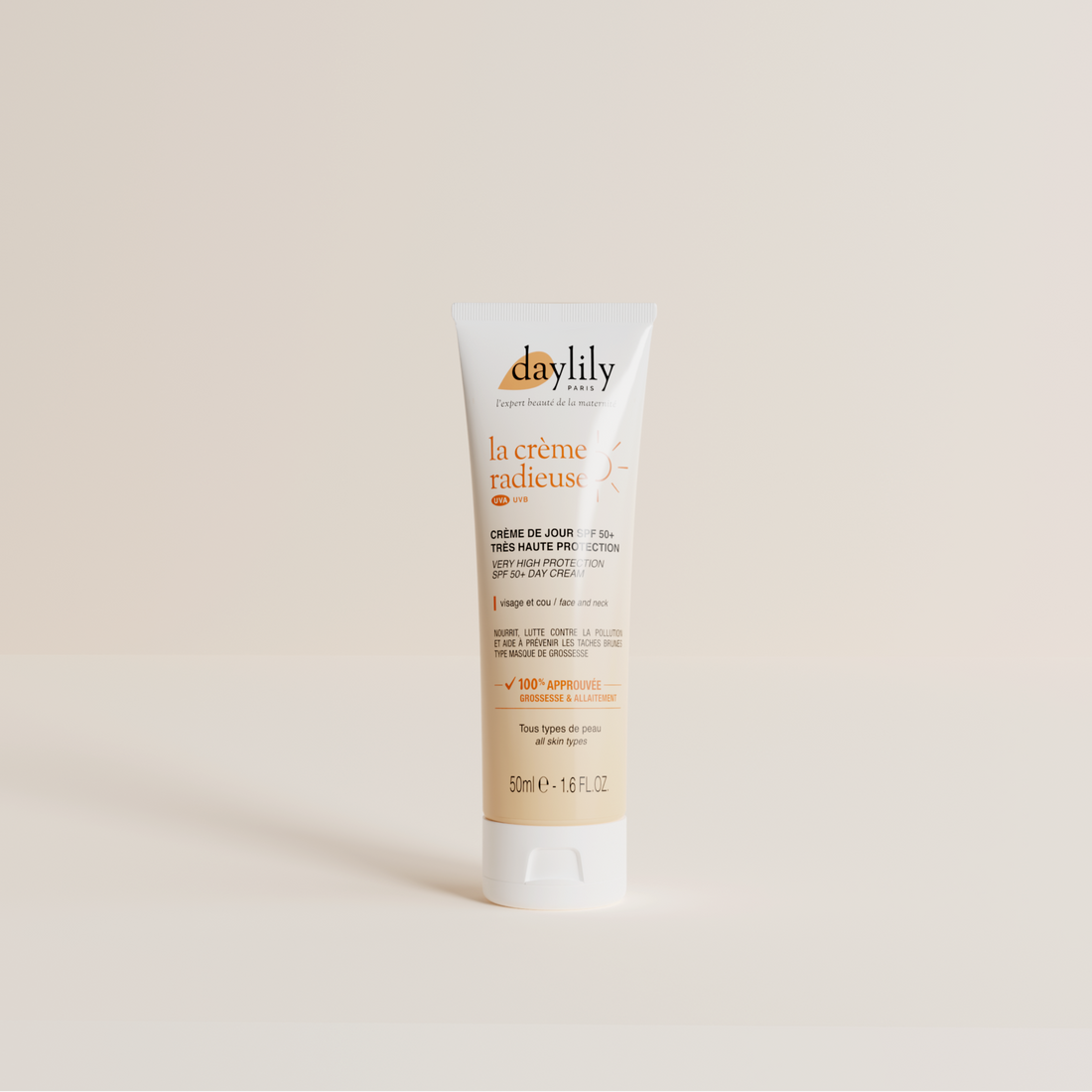
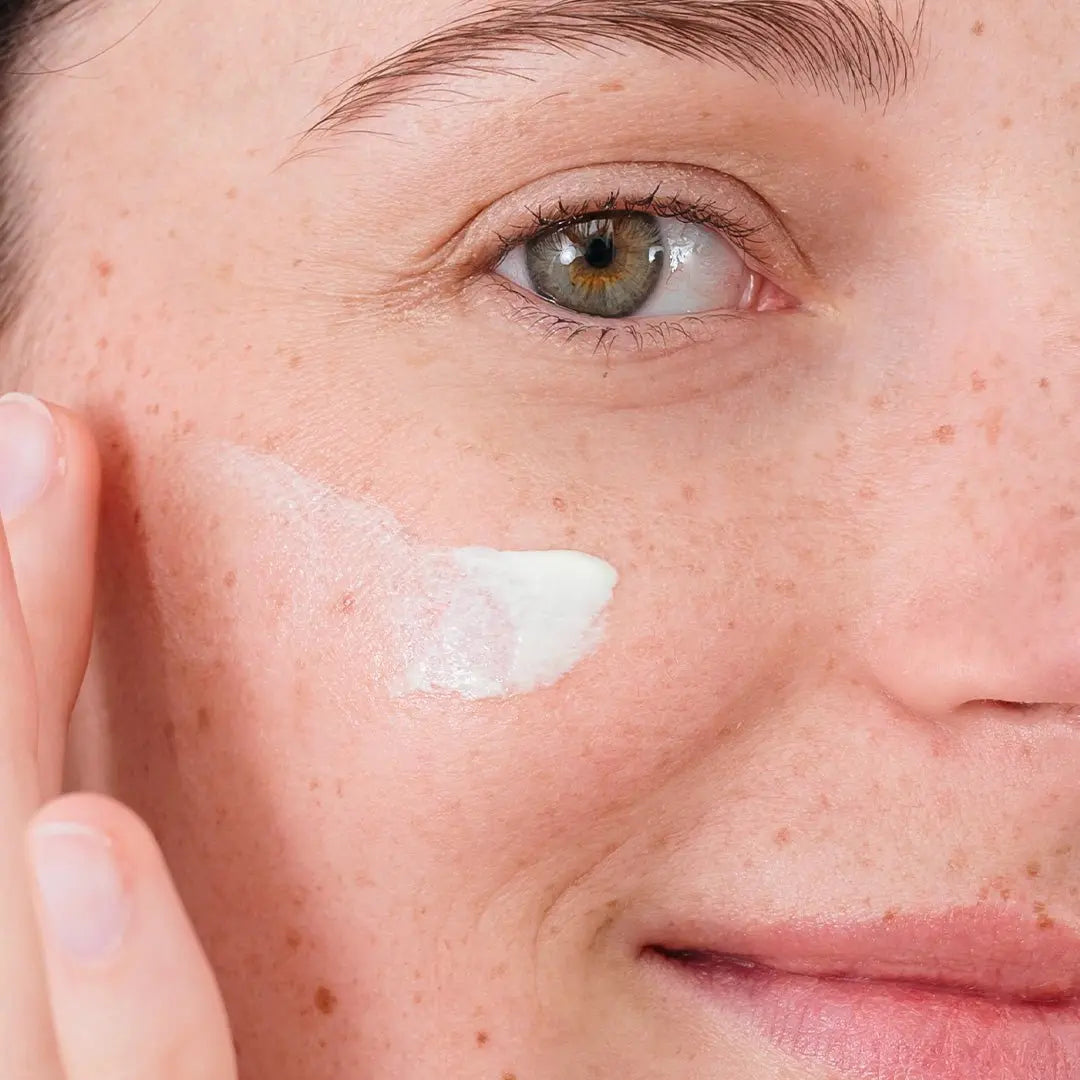
- Regular price
-
24,90 € - Regular price
-
- Sale price
-
24,90 €
If you think that any product will do the trick, you are wrong! Conventional cosmetics are full of substances harmful to the baby. Endocrine disruptors, carcinogens, allergens and whatnot haunt the formulations of many face and body treatments. Organic is an interesting alternative, but too often formulated with essential oils, which are mostly not recommended while expecting a baby. The solution ? Opt for a skincare brand for future and young mothers like those from Daylily, which has banned all these harmful ingredients to take care of you for the next nine months!
Do you want to know what awaits you next? Visit our month-by-month pregnancy follow-up, a valuable guide full of advice and information to see things more clearly :)
Photo credit: asmae.er.rammani





